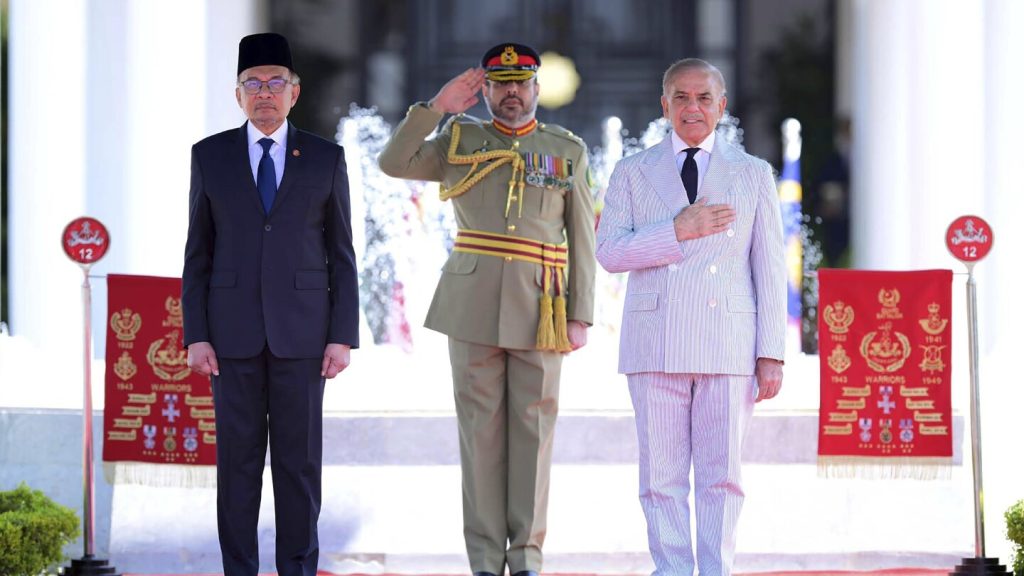The prime ministers of Malaysia and Pakistan discussed increasing bilateral trade and boosting economic ties between their nations during talks in Islamabad. Anwar Ibrahim and Shehbaz Sharif agreed to strengthen cooperation in various fields, including energy, agriculture, connectivity, and tourism. The two leaders aim to enhance economic cooperation, remove barriers in key sectors, provide a level playing field, and address trade imbalances. The bilateral trade between Malaysia and Pakistan in the fiscal year 2023-2024 stood at $1.5 billion. Pakistan, which recently received a $7 billion loan from the IMF, is looking to expand trade with Middle Eastern and Western countries while also improving economic ties with Malaysia.
Pakistan, a nation of 240 million people, is grappling with political turmoil as supporters of imprisoned former Prime Minister Imran Khan continue to rally for his release. Khan has been in prison since last year following his ouster in a no-confidence vote in parliament in 2022. He has been embroiled in over 150 cases, and his supporters plan to hold another demonstration in the Pakistani capital. The situation reflects the ongoing challenges and divisions within the political landscape of Pakistan, with Khan’s imprisonment leading to increased tensions among various factions and supporters.
The visit of Anwar Ibrahim to Pakistan signifies a potential opportunity for both countries to strengthen their economic partnership and explore avenues for increased collaboration. By focusing on areas such as energy, agriculture, connectivity, and tourism, Malaysia and Pakistan aim to enhance their trade relations and create a more conducive environment for economic growth. The agreement to address trade imbalances and provide a level playing field for both nations indicates a commitment to fostering mutual benefits through bilateral cooperation.
Pakistan’s recent economic challenges, including securing a substantial loan from the IMF, highlight the country’s need to expand trade and investment opportunities to boost its economy. Strengthening ties with countries like Malaysia can provide Pakistan with access to new markets, technology, and expertise, offering potential solutions to its economic woes. By engaging in discussions and agreements to promote economic cooperation, Pakistan seeks to overcome its financial constraints and pave the way for sustainable growth and development.
The political unrest in Pakistan, particularly surrounding the imprisonment and legal battles of Imran Khan, adds a layer of complexity to the country’s domestic situation. The ongoing demonstrations by Khan’s supporters reflect the deep divisions and tensions within Pakistani society, highlighting the need for political stability and unity. The government’s efforts to navigate these challenges while also focusing on economic development and international partnerships demonstrate a delicate balance and the importance of addressing both internal and external issues to ensure the country’s prosperity and stability. Overall, the discussions between Malaysia and Pakistan provide an opportunity to strengthen ties, address economic concerns, and navigate the complex political landscape in Pakistan to foster growth and cooperation between the two nations.


